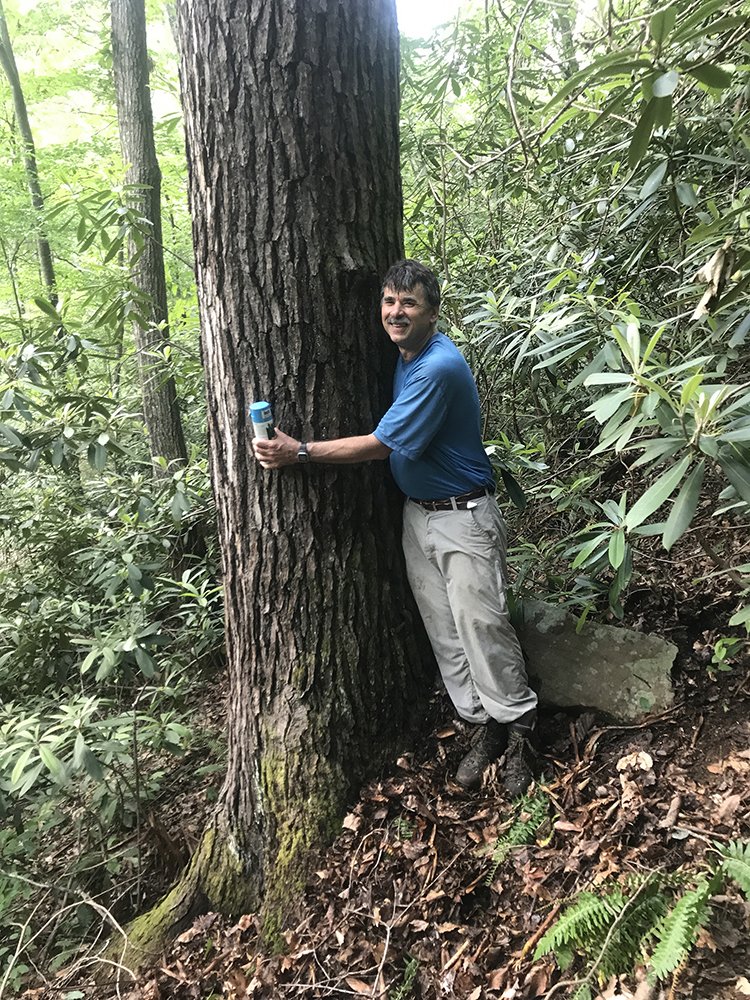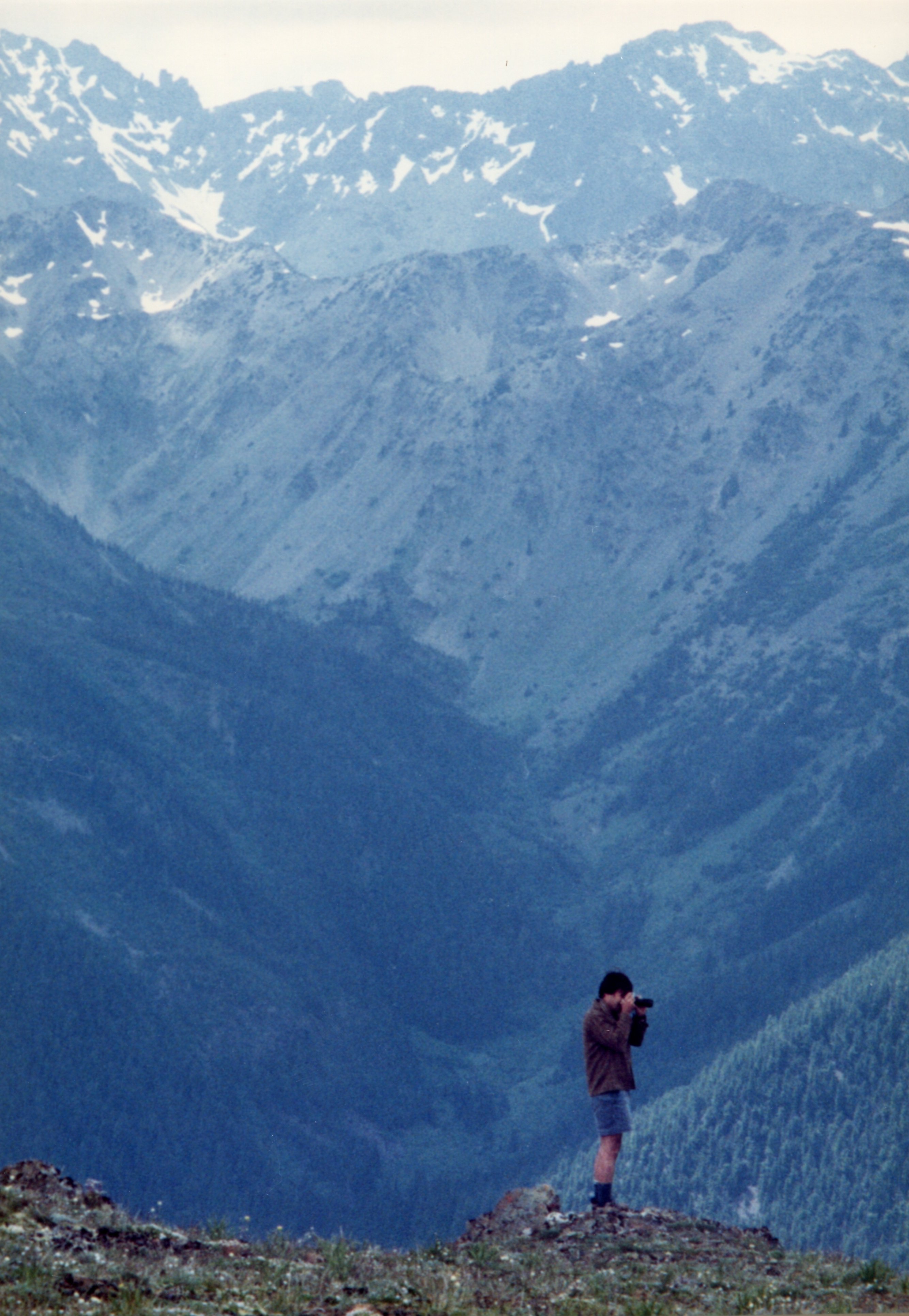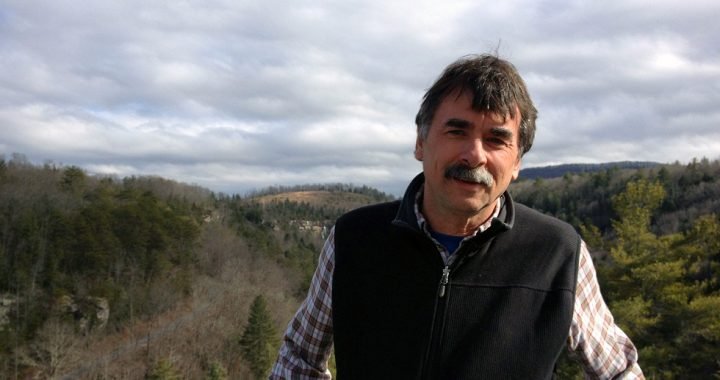-
Jimmy Groton, Wetland Ecologist at EnSafe, Is No Exception
Not all heroes wear capes. Some heroes, in fact, leave such a small footprint, environmentally speaking, they’re hardly noticeable. Jimmy Groton, an environmental scientist and wetland ecologist at EnSafe, is one of those people.
As humble and soft-spoken as Jimmy is, his contributions to conservation haven’t gone unnoticed. He’s been named this year’s Conservation Hero by Discover Life in America (DLiA), a nonprofit that promotes the conservation of global biodiversity.
Though Jimmy says he’s not exactly sure why they chose him, we see clues in how Jimmy spends most of his spare time. “Sometimes I joke that I keep working so I can afford to do all the volunteer things I do,” he says. He’s president of Emory River Watershed Association (ERWA). He’s either been a board member or president of Tennessee Citizens for Wilderness Planning (TCWP) for the past 25 years, a board member of the Tennessee Invasive Plant Council (TN-IPC), and a board member and founding member of the Friends of Frozen Head State Park. He’s served on the City of Oak Ridge Environmental Quality Advisory Board for 18 years. … The list goes on.
-
We sat down with Jimmy recently and came away feeling inspired.
EnSafe: What motivated you to get into environmental science and wetland ecology?
Groton: Since I was a little kid, I loved being outside. We had what seemed like a large forest behind our house and a creek down the street where we spent hours and hours playing. I loved playing in those woods and that creek.
EnSafe: So, you earned a BS in Natural Resources and an MS in Forestry because of all those hours outside?
Groton: Yes, but I became a wetland scientist kind of by happenstance. I learned a lot about plants, soils, and geology in college. But I had no clue what I could do personally to make a difference in conserving those resources until I was hired by SAIC in 1989 as a wetland ecologist. I answered an ad in the newspaper about an open position. Kevin Shaw, my first boss, realized that wetland ecology was probably something I would enjoy doing. Turned out he was right.
EnSafe: That’s 30 years in the industry now. Any lessons learned you can share as a “weathered” ecologist? As a “Conservation Hero,” in fact!?
Groton: Ha! I never thought I’d be anybody’s hero and I’m not so sure I am one now. I’ve been lucky to work with extraordinary people and together we accomplish some pretty cool things. Strength in numbers, I guess. … As for lessons learned, I’ve come to realize that efforts to protect our sensitive natural resources are rarely finished, and bad ideas that threaten our natural resources never go away completely. They might go to sleep for a while, but there is always someone willing to reintroduce some terrible ideas.
EnSafe: So, in your never-ending job of protecting natural resources, what’s your favorite part?
Groton: Being in the field. I absolutely love it. I’m reminded of my Aunt Eleanor, who helped me realize it was okay to love things in nature (forests, rivers, mountains, deserts) just because they are, not because of what you can harvest or manufacture from them.
EnSafe: Take us with you into the field; describe what moves you.
Groton: When you sit still, especially in the morning or evening light, and listen and watch and open your senses to everything around you, you see all sorts of incredible things that you don’t see when you’re moving around and making your own noise. The sounds of the birds, frogs, and wind. The sound of quiet when the wind is still and there are no regular noises. There’s all kinds of magic going on around us all the time no matter where we are. We are part of that natural world. I love that feeling.


-
EnSafe: What’s a project highlight – something that stands out in your memory?
Groton: It was great helping to protect the viewshed downstream from Lilly Bluff at the Obed Wild and Scenic River in Morgan County. The owners of the land wanted to sell the property, but the National Park Service couldn’t buy the property because it was not included in the park boundary authorized by Congress when they designated Obed a Wild and Scenic River. The Park Service contacted TCWP, who engaged the Tennessee chapter of The Nature Conservancy (TNC) to help us come up with a plan to raise the money. That’s when, out of the blue, two TCWP members decided they wanted to anonymously purchase the property. TNC handled all the negotiations and was finally able to donate the property to the National Park Service.
EnSafe: Sounds like you’ve got a soft spot in your heart for the Obed River.
Groton: I love everything about the Obed: The feeling of being big when you’re on top of the cliffs looking down into the canyon. The feeling of being so small when you’re standing in the bottom of the gorge looking up at the clifftops with those big sandstone walls around you. The sounds of the river when its flowing in and around the boulders in the river bed and the roar of water in the rapids. The way the vegetation and the gorge changes so dramatically from season to season. There are places in winter and spring that actually function more like wetlands and experience scouring and high-water during floods. In the summer and fall they often dry out to the point that they become prairies.
-
EnSafe: Who’s your favorite conservationist?
Groton: Dr. Liane (Lee) Russell. She and her husband Bill started TCWP in 1966 in an effort to protect the Obed River from being dammed. I learned about the Obed, actually, because of Lee and TCWP. She was a great mentor to me, someone who loved the outdoors and worked so hard to protect it. She died a few weeks ago, just shy of her 96th birthday; but she’s one of those heroes who outlive their bodies.
-
Pioneering geneticist Dr. Liane Russell discovered that the Y chromosome determines maleness in mammals and that only one of the X chromosomes is active in females. Photo credit: U.S. Department of Energy, Oak Ridge National Laboratory
-
Dr. Liane Russell at Oak Ridge National Laboratory with her students. Photo credit: Oak Ridge National Laboratory
-
Jimmy Groton and Liane Russell, working together with the Tennessee Citizens for Wilderness Planning to protect Tennessee's natural lands and waters.
-
EnSafe: On behalf of the wild lands and waters in Tennessee and beyond, Jimmy, thank you for being so passionate about our sensitive natural resources and for taking on the mantel of leadership to protect them. You're inspiring the next generation of leaders. … Any favorite quotes to close us out on?
Groton:
“If you think you are too small to make a difference, try sleeping with a mosquito.” – His Holiness Dalai Lama
“When we try to pick out anything by itself, we find it hitched to everything else in the universe.” – John Muir
“Strength in numbers.” – Unknown
“Heroes outlive their bodies.” – Bobby Fulcher, Park Manager, Cumberland Trail State Park, honoring Liane Russell’s environmental legacy
To see one of the projects Jimmy’s been instrumental in moving forward, check out EnSafe’s wetland mitigation bank.
